How to Count Cards: An In-Depth Guide for Blackjack Players
I have spent the last 30 years counting and chasing card counters. While there is a lot of fun to be had on the outside of the table, there's a bit less stress when you are counting from inside the pit with a sure-thing paycheck in your hand.
Hollywood and the media have often portrayed card counters as a Robin Hood-type affair, with these lone players using their brains and their wits to take from the cash-rich corporate casino conglomerates in a high-stakes game of cat and mouse. And while that may be a fair representation in some ways, it doesn't capture the drudgery and mind-numbing boredom that professional counting entails.
It takes a lot of practice before you can even begin to have a 1% player's edge over the house. If we carefully calculate our risk of ruin, use the Kelley criterion to size bets to our bankroll, and then work out what we need to bet $25 minimum bets, we are going to see that we need around $15,000 just to keep our risk of losing all at just 10%. This would probably give us an hourly win rate of around $25 an hour.
That's not some glamorous bringing down the house number, that's hours of hard work and anxiety. To double that bankroll will probably require more than 400 hours of play, and that is if everything goes right. It could take thousands of hours of play to grow your bankroll to where you can make a $100 or more an hour, but once you get to black check play, the odds of you getting caught dramatically increase.
Counting cards is easy, but being a professional card counter is very hard. We will show you the ins and outs of card counting, and how you can dramatically reduce the already low house advantage by using the true count to make your bets and inform your playing decisions. Keeping that house edge low is key to earning comped rooms and dinners and other perks, including sign-up bonuses at online casinos, and while pop culture makes card counting look like it requires a degree from a Harvard League school, it really isn't much more than keeping track of the high cards and the low cards.
♠️ Basic Card Counting Strategy
Let's take a quick look at the ever-popular Hi-Lo count system to see how a card-counting strategy actually works. The strategy should provide three things: how many betting units we should bet, the optimal play now versus perfect basic strategy considering the cards remaining in the shoe, and when we should take the optional insurance bet when the dealer has an Ace up.
In the Hi-Lo system, we count the cards dealt from the shoe as they appear on the table. The two through six cards are counted as +1. These low cards help us, as the more high cards remain, the bigger the statistical advantage. Aces and ten-value cards count as -1 as they have depleted the number of ten cards in the remaining deck. Seven, eights, and nines are a neutral card count or 0.
We add or subtract these cards as we see them, keeping a running count. We then divide this running count by how many decks are remaining to get the true count. This true count number is then first used to help us determine how to play our current hand; we want to have counted every card exposed on the table before we make that decision.
Once we have converted those cards into first a running count and then a true count, we see if we need to make a change from the basic strategy. While the large number of possible deviations may seem alarming, Don Scheslinger, an important blackjack writer and mathematician, determined that the vast amount of expected player value was made from just 18 deviations. He called this the illustrious 18, and they are memorized by all serious counters. For instance, a sixteen against a dealer ten should be hit in basic strategy, but when counting cards, it has an index of 0, meaning that in any positive count, we should stand.
Once that hand ends, before the new cards are dealt, we need to decide on our next bet. We will use our true count number to inform our decision. If the true count is 0 or negative, we want to make minimum bets; the more positive the true count number, the larger we want to make our bets. However, in order to avoid attracting attention from casino personnel, we should never spread too many betting units.
Your maximum bet on a double deck should never be much more than 8 units, and sixteen units on a six-deck shoe is probably pushing it. Just because the true count has gone off the charts doesn't mean we have free reign to bet the table maximum without getting backed off from the property. A high count gives us a positive expectation, but it doesn't mean we are guaranteed to win. And giving casino surveillance a chance to ban players seems silly when we can simply refrain from overbetting and continue to play blackjack with a positive expectation long term.
Now, once we've made our bets, but before we play our hand, we may be met with the option of taking insurance. As the count goes up, so does the chance that a dealer will have blackjack. If the dealer shows an Ace top card, you will be offered insurance. This means putting out half your bet, with you getting paid two to one or essentially your money returned if the dealer does have blackjack. This is usually a very bad bet because only four out of 13 cards are, in fact, ten cards. But as the number of high cards in the remaining deck climbs, so does our bet. If the count goes +3 or higher, then we should take insurance.
➡️ Effect of Removal (EOR)
We would not be able to beat blackjack with an infinite number of cards. But we have a very small, finite number of cards, and as some of them are played and removed from the remaining shoe, the actual odds of the game change. This doesn't happen in other casino games like roulette or dice, the odds always remain the same. And in games like baccarat, the effect of removal isn't enough to overcome the small house edge.
But in blackjack, the effect of removal of certain small value cards out of the shoe can leave the player with a more than 2% edge. When that happens, not only must the player be prepared to bet more, but be prepared to deviate from basic strategy depending on how many small cards are missing, since their removal will also affect how to properly play the hand.
➡️ Betting Correlation (BC)
We use various counting strategies to model this effect of removal. But just as the menu is not the meal, our models are not exact replicas of the cards remaining in the shoe. Some models are better than others at what we call betting correlation, which means considering the cards removed and the point totals we've assigned to them, how well does our strategy do at predicting the proper size bet?
Some strategies, like Halves or Red Seven, can get us to 98% or better betting correlation, but often, these card counting systems optimize either the Betting Correlation or Playing efficiency; it is hard to be good at both.
➡️ Playing Efficiency (PE)
As you might expect, playing efficiency is how well our model/strategy is at using our point totals to predict how to change basic strategy against the remaining cards in the shoe. A good strategy here, like Hi-Opt II or Omega II, can get you into the high 60s percentage-wise.
This number is a bit low because the math behind the proper play of each hand has to cover many possible hand combinations, so no system can model all of those decisions with just one true count number that will magically correlate to how to play hands as varied as player 15 against a dealer ten (+4), or doubling an eleven against a dealer ace(+1).
➡️ Insurance Correlation (IC)
Roughly one in every thirteen hands, the player will be presented with a dealer's ace-up card and the opportunity to take insurance. This is more important than it might seem because when there are more tens left in the deck forming a high true count, we will be betting much higher.
However, it is much more likely that the dealer will, in fact, have blackjack. So, a good model/system needs to be able to predict when we need to take insurance because, in fact, taking insurance is the number one basic strategy modification as far as player expected value is concerned.
The correlation between systems here is much more spread out than our betting correlation or player efficiency percentages. The widely popular Hi-Lo card counting strategy is about 76% accurate, while the more complicated Hi-Opt II is about 91% accurate.
♦️ Card Counting Systems
There are various ways to model the remaining cards in the shoe by awarding various point totals to the dealt cards and forming a running count. And then building a playing strategy on that, but some systems will work better with multiple decks, the card values of others will be better at predicting the proper bet, and yet other counting systems will excel in predicting how to play the remaining cards, which is why there are more than 50 published blackjack strategies.
1️⃣ Level-1 Counts
Level One counts keep card values at either +1,-1, or 0 and are, therefore, easier to keep track of in the heat of a quick blackjack game.
↕️ Hi-Lo System
The High-Lo card counting strategy is the most used strategy in the world of card counting for a few simple reasons. First, it's easy. Ten value cards and Aces are -1, two through six are +1, and seven, eight, and nine are 0.
It's a balanced count, meaning that once all the cards are dealt, the count will equal zero. It scores an impressive 97% on betting Correlation (BC) but is a bit weaker than other strategies in both Player Efficiency(51%) and Insurance Correlation(IC)76%.
Many studies have shown that it is far better to keep an accurate count and play it correctly than play a count system that might up the PE and IC numbers but add the possibility of making mistakes. For that reason alone, many card counters have made the decision to count cards in blackjack using the HI-Lo and do it accurately, compared to those who have chosen to use all the other level 1 count systems combined.
⬆️ Hi-Opt I
The High Opt I was a very popular system for counting cards in the 1980s. It was particularly powerful against the single-deck games of that era. While not often seen in use today, people are often drawn to its big brother, Hi-Opt II. It is a balanced count that awards -1 for ten value cards, and +1 for three through six. Not only are the six through nine cards considered neutral (0), but so is the Ace. You will want to keep a separate count of Aces in order to get the most from this strategy. This gives us scores of BC 66/PE 61/ IC 85.
🥊 Knockout System
I like to call the Knockout system counting without division, as it uses an unbalanced system that allows us to use the running count without first dividing it to get the true count. This makes it dead simple to use. The two through seven cards are +1, the Ace and ten-value cards are -1, and the rest are neutral.
Because this is an unbalanced system and since we won't be dividing to get a true count, we need to have an Initial Running Count after the shuffle. A double deck starts with an initial count of -4, a six-deck shoe starts with a running count of -20, and an eight-deck shoe starts with a running count of -28, instead of zero in the Hi-Lo strategy. We then just add and subtract our running count to make our decisions and bets. With scores of BC 98/PE 55/IC 78, you can see that simplicity doesn't hurt its effectiveness when compared to other Level 1 counting systems.
🔴 Red 7
A card counter might choose the red seven count as a simple way to improve his strategy's effectiveness without adding much difficulty. The Red Seven system of counting cards is exactly the same as the Hi-Lo, but now a red seven is +1 while a black seven still counts as zero. This gives us an unbalanced counting system.
We will use this unbalanced system to once again keep us from having to convert running count to true count. Here, we will establish our "pivot" at -4 for double decks and -12 at a six-deck shoe. Any count of 0 or higher should mean a player's advantage of more than 1%. Our score for Red Seven looks like this: BC 98/PE 54/IC 78
2️⃣ Level-2 Counts
A level two count means that we are going to count some cards as more than either +1 or -1 because they do indeed have more of an effect of removal on our blackjack play that the simpler Level One count systems glossed over. Whether that increased accuracy of betting and play comes at the cost of increased errors in the count when playing blackjack will depend on the individual counter.
⬆️ Hi-Opt II
Hi-Opt II is probably the most used Level 2 count because it scores well on all three of our indexes. BC 91/PE 67/IC 91. The counting system here is still 0 for aces, +1 for the two, three, six, and seven, then +2 for the four and five. All ten-value cards are -2. Ideally, one would keep a side count of aces, especially in shoe games. It's a balanced count, so we will need to divide the running count to get the true count.
🌠 Omega II
Bryce Carlson made this count famous in his seminal "Blackjack For Blood" title. It is ace neutral so therefore benefits from a side count of aces. Many people find it a bit unwieldy for use on the casino floor, but it scores well if you can keep up with the math. BC 92/PE67/IC 85.
Aces are 0, two's and three's are +1, fours, fives, and sixes are +2. A seven is +1 and an eight is zero, while a nine is -1. All ten-value cards are -2.
😇 Zen Count
Arnold Snyder is well known as one of the leading card-counting theorists in the world. His research led him to propose the Zen Count in his 1983 "Blackbelt In Blackjack". While a bit complicated, it is one of the highest-scoring counting strategies currently published, with scores of BC 96/PE 63/IC 85.
This is a balanced count where aces are -1, tens are minus -2 and eights and nines are neutral. Twos, threes, and sevens are +1, while fours, fives, and sixes are +2. You will need to convert the running count to true count by dividing it by the remaining full decks.
🔟 10 Count
The Ten Count is used by exactly zero people for counting cards today. It is a leftover relic from a bygone era almost seven decades ago. But as the first mathematically proven count system, we thought we should mention it as an homage. Edward O. Thorpe, the grandfather of the modern-day card counter, first pieced this together on some of the room-size IBM computers in the early 1960s.
Designed for the single-deck games offered in Nevada at the time, it didn't provide a player with any deviation from basic strategy at all and only laid out basically when a player should increase their betting unit and when they should make the table minimum bet. But it was strong enough to attract serious investors' attention to counting cards and help Thorpe sell the idea that blackjack could indeed be beaten.
For those interested, ten-value cards were -9, and all other cards were +4. Some of you will intuitively see that this is just a way of counting the number of ten cards left in the deck. But knowing there were enough tens left to be played was enough to swing the odds in the player's favor in those deeply dealt single-deck games with advantageous rule sets.
3️⃣ Level-3 Counts
A level three count just indicates that there will be three different numbers used for different value cards. But it ups the complexity when attempting advantage play.
🌓 Wong Halves
Stanford Wong is another member of the early card counting fraternity, which did so much of the math in the 1970s to help us understand the game. Wong's contributions to card counting are immeasurable and long-lasting, but his Level Three count called the Wong halves, sadly was not. While one of the best count systems available at the time, it was complicated and clunky in its actual use on the blackjack table.
While the ten-value cards and aces are -1, the nine is -.5, and the two and seven are +.5. The three, four, and six are +1, but the five are +1.5. Many folks preferred to keep a side track of aces on top of all this, so you can imagine that things got a bit dicey quickly. The scores are BC 99/PE 56/IC 72.
♣️ How Deck Penetration Impacts Card Counting
How many cards we see before the shuffle can make or break any given game. No matter how good the rule set only seeing half the cards is going to mean an unplayable game. In fact, good penetration can easily offset mildly bad rules like double on ten or eleven only or hit soft 17 if we get enough penetration.
Also, we see much more variance in high and low counts with increased penetration. I often cite Schlesinger in Blackjack Attack, who states that if we cut off only one deck instead of two on a six-deck shoe, the number of times we see a true count of +6 triples and even the number of times we see +4 doubles. Of course we will also see deeper negative counts on shoes as well, but the number of very high positive counts means we will have many more chances to push in big stacks.
♥️ Understanding Player Advantage & When to Bet
The premise is simple, bet more when the true count is high, and bet the table minimum when the count is neutral or negative. Your chosen counting strategy will approximate how much you should bet when the true count reaches each level.
But true professional counters will tell you that while it is important to play the game as closely as possible to those rules and strategies, doing so without any cover is a sure recipe for getting backed off. This is the art of card counting, and what separates the greats from those caught and washed out every year. One of the easy instances is splitting tens.
Despite the widespread wisdom of the ploppies (the everyday Joe Blow blackjack player), there are times when the count calls for splitting tens against a dealer six. (+4) But every dealer who has been dealing for more than five minutes knows only idiots and card counters split tens. So, most counters will choose self-preservation over making the right play.
⚖️ Is Counting Cards Illegal?
You can't be arrested in the US for card counting, but there are many places in the Caribbean, Europe, and South America where you can be, so always be very aware of the law where you are playing. While you can't be arrested in the States you can be backed off.
Backed off takes on many forms depending on whether the casino feels it can still make money off you on other games. And honestly, a little bit in the way you handle the backoff. If you start cussing, acting aggressively, or, god forbid, touching a security officer, you will likely be trespassed, meaning if you come back you will be arrested. In the case of touching a pit manager or security, even with just a finger you will almost certainly find yourself on the carpet in handcuffs.
If you laugh and joke and aw shucks, you may be allowed to stay on the floor but no more blackjack. Or you may find the middle ground where security simply asks you to leave, and you aren't formally trespassed.
The issue is, however, that the casino is like the biggest tattle from junior high. They are going to tell all their other casino buddies about what they caught you doing. This will mean that you will likely be barred from properties the minute surveillance IDs you. The next casino won't wait to watch your play to see if you are a threat; they will simply ask you to leave as well. This means you need to fly under the radar a thousand times, but surveillance just needs to catch you once to pretty much put an end to your counting career. Or at least seriously complicate it, as now almost every casino in the country will have your picture and info.
Using any kind of device, whether it's sunglasses positioned to catch a hole card or a computer in your shoe, is illegal and will get you prison time. From prisms made to look like ice cubes to ultraviolet daubs placed on the back of cards, cheats have tried it all, and while the US courts have ruled that you can attempt to use your brain to beat the game, any other form of aid will get you arrested.
Learn more about proper casino etiquette by reading our guide.
💻 Can You Count Cards in Online Blackjack?
Online casinos continue to expand in the US. Seven states, including Michigan, New Jersey, Pennsylvania, Delaware, Connecticut, Rhode Island, and West Virginia, currently allow legal online blackjack.
When you play against a computer, there is very little opportunity to count cards as the computer reshuffles after every hand. You could play perfectly against a single-deck game that lets you spread three hands or more, thereby reducing the very low house edge of around .2% even more, but you can't get a positive expected value with that perfect play alone with only eight or nine cards exposed each shuffle.
Live dealer games have become quite popular in the past few years. These are played with real cards and dealt from real shoes. Some have continuous shuffler machines, and others don't have even 50% deck penetration on 8-deck shoes, but you can bet for $1 on a "live" game and practice your card counting over a live video stream where no one is going to care if your lips are moving as you count. It will prepare you somewhat for actual land-based play with casino pit personnel watching you much more closely.
🤵 Best Real Money Casinos Where You Can Play Online Card Games
Once you learn how to play perfect blackjack strategy and spend a little time card counting, you're going to realize that comps, free play, and other perks of gambling play a huge role in your profit or loss. Online casinos offer these in spades, as they don't often have the overhead that land-based casinos require.
Another good use of online blackjack games is to quickly raise your tier points and levels so you can get things like resort fees waived, or an invite out to Las Vegas. Just because online blackjack can't be counted doesn't mean that you shouldn't consider all the benefits of playing. Many professional video poker players played for years on games that had much higher house advantage than most online blackjack games have and still came out ahead with all of the casino offers.
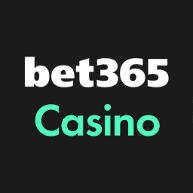

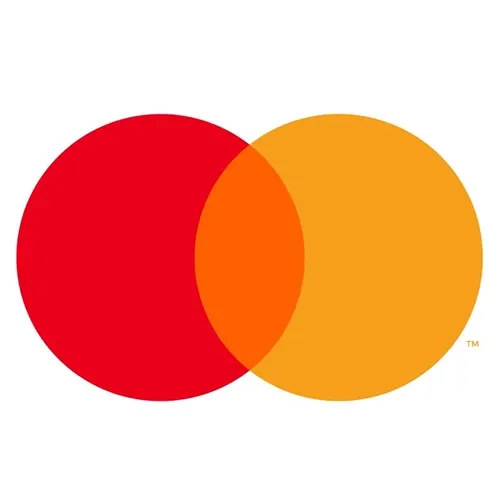


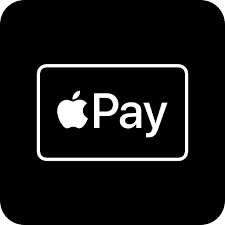


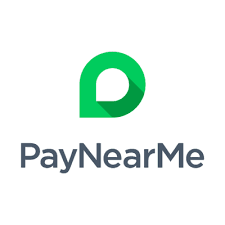


| 📖 Suggested Reading | bet365 Casino Bonus Code |
| 🌟 Promo Code | ACTION |
| 🤑 Welcome Bonus | Get a Deposit Match Bonus up to $1,000 + up to 500 Spins! |
| ✅ Available States | NJ & PA |
While bet365 is better known in Europe, it's gaining traction here in the States. Though, players should be aware that the $1,000 welcome bonus can't be cleared with blackjack play. The 30x wagering requirement only applies to select slots, so while the bonus won't benefit table game fans directly, bet365 still offers a solid blackjack experience and frequent promos that make it worth a look if you're mixing in some slot play.
Pros
- bet365 Exclusive Promos & Casino Games
- Bonus Spins With No Wagering Requirements
Cons
- Limited Rewards Program
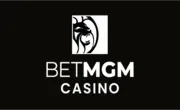







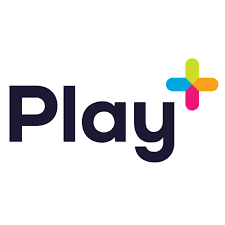



| 📖 Suggested Reading | BetMGM Casino Bonus Code |
| 🌟 Bonus Code | ACTIONCASINO |
| 🤑 Welcome Bonus (MI, NJ, & PA) | Get a 100% Deposit Match up to $1,000 in Casino Credits + $25 on The House! |
| 💸 Alternative Welcome Bonus (WV) | Deposit Match up to $2500 + $50 on the House + 50 Bonus Spins! |
| ✅ Available States | MI, NJ, PA & WV |
BetMGM Casino is an acclaimed online casino that features over 2,000 online slots, a diverse selection of live dealer games, and online bingo. Additionally, it offers exciting progressive jackpots within its network, some of which have reached record-breaking levels.
Pros
- Solid Rewards Program
- Several Bonuses Available
Cons
- High Wagering Requirements
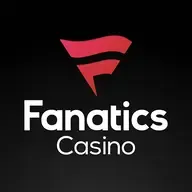






| 📖 Suggested Reading | Fanatics Casino Promo Code |
| 🤑 Welcome Bonus (MI, NJ, PA) | Get up to 1000 Free Spins on Triple Cash Eruption! |
| 💸 WV Welcome Bonus | Get up to 1000 Free Spins on Triple Cash Eruption! |
| 💸 New WWE Promo (MI, NJ, PA, WV) | Bet $30 Get $150 in Casino Credit! |
| ✅ Available States | MI, NJ, PA & WV |
Fanatics is one of the newer players in the online casino market. Their offerings haven't been as much as other operators, but given they are newer they will only continue to offer more blackjack options for players to enjoy. The casino app a part of the Fanatics Sportsbook app has become a serious competitor in this space, but only time will tell. Their welcome offers at the moment are both deposit bonuses that will reward players in casino credits.
Pros
- Generous Welcome Bonus
- Solid Casino Games Library
Cons
- No Dedicated Casino App
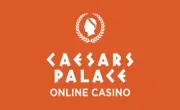












| 📖 Suggested Reading | Caesars Palace Online Casino Promo Code |
| 🌟 Promo Code | ACTIONLAUNCH |
| 🤑 Welcome Bonus | Get $10 on Registration + 100% Deposit Match up to $1000! |
| ✅ Available States | MI, NJ, PA & WV |
Caesars online casino lets you play your favorites like blackjack variations from the comfort of your own home! What makes it one of the top online gaming sites is the great layout of the website and casino app, so you can seamlessly play games and wager without worrying about issues. Caesars Palace Online Casino recently introduced its highly anticipated upgraded app. Launched in April 2024, the app boasts a new pipeline of exclusive Caesars-branded casino games for players in New Jersey, Pennsylvania, West Virginia, and Michigan. Millions of players engage with the casino's popular app daily.
Pros
- Lots of Bonuses Available
- Trusted Casino Brand
Cons
- Slow Help Center


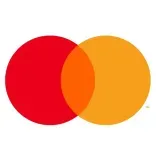






| 📖 Suggested Reading | FanDuel Casino Promo Code |
| 🌟 Promo Code | No Code Needed |
| 🤑 Welcome Bonus | Deposit $10, Get 500 Bonus Spins & $40 In Casino Bonus! |
| ✅ Available States | MI, NJ, PA, WV |
Besides providing elite sports betting, FanDuel Casino delivers five live play options, including Free Bet Blackjack. FanDuel Casino offers flexible betting for live blackjack, ranging from a buck to $5,000 in the case of Free Bet Blackjack.
Fortune Coins Casino is another excellent platform for playing blackjack, offering both traditional and unique variations to keep the game refreshing. Additionally, sweepstakes casinos and social casinos like Pulsz Casino offer a variety of casino games from online slots to table games.
Pros
- Dedicated Mobile App
- Variety of Available Payment Methods
Cons
- Lacking a VIP Rewards Program
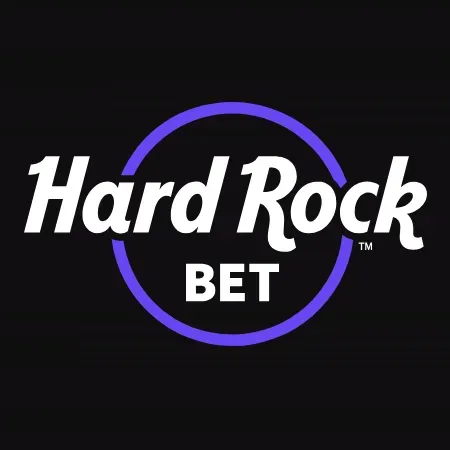
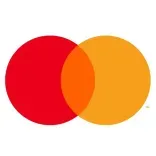









| 📖 Suggested Reading | Hard Rock Bet Casino Promo Code (Review) |
| ⭐ Promo Code | No code needed |
| 🎁 Welcome Bonus | Get 200 Bonus Spins on Huff N More Puff + Up to $1,000 Lossback in Casino Bonus! |
| ✅ Available States | NJ, MI |







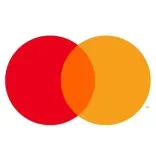
| 📖 Suggested Reading | Hollywood Casino Promo Code |
| 🌟 Promo Code | ACTIONCAS |
| 🤑 Welcome Bonus | Wager $5 and Get $50 in Penn Play Credits + 50 Bonus Spins! |
| ✅ Available States | MI, NJ, PA, WV |
Hollywood Casino gives blackjack players a reliable place to practice, offering classic 21 games from respected providers like IGT and NetEnt. The selection is modest, but each table is easy to read, quick to load, and consistent across mobile and desktop.
Pros
- Smooth Gameplay on Both App And Desktop
- Classic Blackjack Variants From Trusted Providers
Cons
- No Current Refer-A-Friend Program





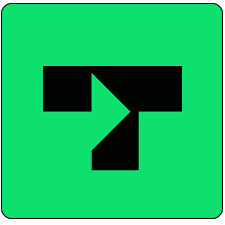







| 📖 Suggested Reading | Borgata Casino Bonus Code |
| 🌟 Bonus Code | ACTIONBCASINO |
| 🤑 Welcome Bonus | $500 Match or 200 Spins + up to 1,000 Spins on the House! |
| ✅ Available States | NJ, PA |
Borgata Casino offers more than a dozen types of virtual blackjack as well as a live dealer lobby where you can try different blackjack variants.
There’s always an open seat at the table when you play titles like 'Live Dealer Infinite Blackjack', which has a 99.47% RTP (return-to-player). Rules generally favor the player too, as for example, the dealer must stand on all 17s.
Pros
- 3:2 Payout Blackjack Games
- Blackjack X-Change
Cons
- Pass on Side Bets
⚖️ Gambling Responsibly
People who think they know how to count cards are some of the worst at managing their bankrolls. Convinced that they have an advantage, they often overbet their bankrolls, continue playing after they've lost their session bankroll, and break just about every other precept of responsible gaming, including borrowing money to continue to play.
Even if you are able to count cards well enough to eke out a 1% profit, you must be aware that there will be many losing sessions. You should over-familiarize yourself with the Kelly Criterion to help you figure out the session and overall bankroll requirements. You shouldn't play long sessions that may lead to mistakes with the running count. Don't lose money that you need for other things. And you should never borrow money to make your bankroll. Start small and grow it instead.
